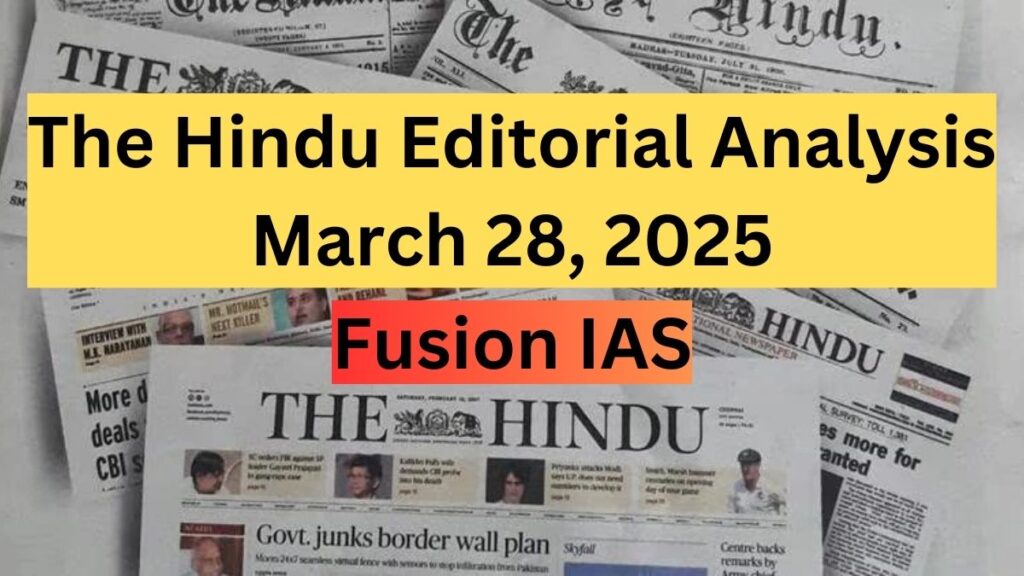The Hindu Editorial Discussion is crucial for UPSC CSE preparation, offering in-depth analysis of current affairs, government policies, and socio-economic issues. It enhances critical thinking, answer-writing skills, and interview preparation by providing diverse perspectives on national and international developments. Regular editorial reading helps aspirants develop a balanced viewpoint, improving their essay writing and General Studies papers.
The judiciary’s ‘between a rock and hard place’ moment
The recent controversy surrounding Justice Yashwant Varma has once again brought the issue of judicial appointments and accountability into focus. The case has sparked debates on judicial independence, misconduct, corruption, and the role of the government in the appointment of judges. While the collegium system has its flaws, increasing government control over judicial appointments could pose a serious threat to the judiciary’s independence.
The Justice Yashwant Varma Case
An accidental fire in the outhouse of Justice Varma’s official residence in New Delhi led to the discovery of burnt high-value currency notes. The incident was reported to the Chief Justice of the Delhi High Court and later to the Chief Justice of India (CJI), who initiated an inquiry. As a transparency measure, the CJI released all information related to the case in the public domain and advised against assigning judicial work to Justice Varma until the inquiry was completed.
Government’s Response and NJAC Revival Attempt
The case provided the government with an opportunity to push for greater control over judicial appointments. The Vice-President initiated discussions on reviving the National Judicial Appointments Commission (NJAC), which was struck down by the Supreme Court for violating the basic structure of the Constitution. The NJAC would have given the government significant influence over judicial appointments, undermining the independence of the judiciary.
Government Interference in Judicial Appointments
Despite the existing collegium system, the government has been delaying or blocking judicial appointments selectively. The Modi government has stalled appointments of independent judges while fast-tracking those perceived as favorable. In response, the collegium has at times compromised by appointing judges aligned with the government’s preferences. This has weakened judicial independence over time.
The Need for a Transparent Judicial Appointment System
While the collegium system has its drawbacks—such as lack of transparency and nepotism—greater government control is not the solution. A more effective approach would be the establishment of a full-time Judicial Appointments Commission, independent of both the government and sitting judges. This commission, comprising retired judges and eminent public figures, could ensure a transparent and merit-based selection process.
Judicial Corruption and Accountability
The Justice Varma case also highlights the issue of corruption in the judiciary. The current impeachment process, requiring political approval in Parliament, has proven ineffective. A more practical solution would be a Judicial Complaints Commission, independent of both the government and judiciary, empowered to investigate allegations of misconduct and take disciplinary actions without political interference.
Conclusion
The judiciary’s independence is essential for upholding the rule of law and protecting citizens’ rights. While the collegium system needs reform, government interference in judicial appointments will only erode judicial integrity further. Establishing independent bodies for judicial appointments and accountability could address these concerns while preserving the judiciary’s autonomy.
Disclaimer:
This analysis is based on the editorial content published in The Hindu and is intended solely for informational and educational purposes. The views, opinions, and interpretations expressed herein are those of the author of original article. Readers are encouraged to refer to the original article for complete context and to exercise their own judgment while interpreting the analysis. The analysis does not constitute professional advice or endorsement of any political, economic, or social perspective.
Follow Fusion IAS

